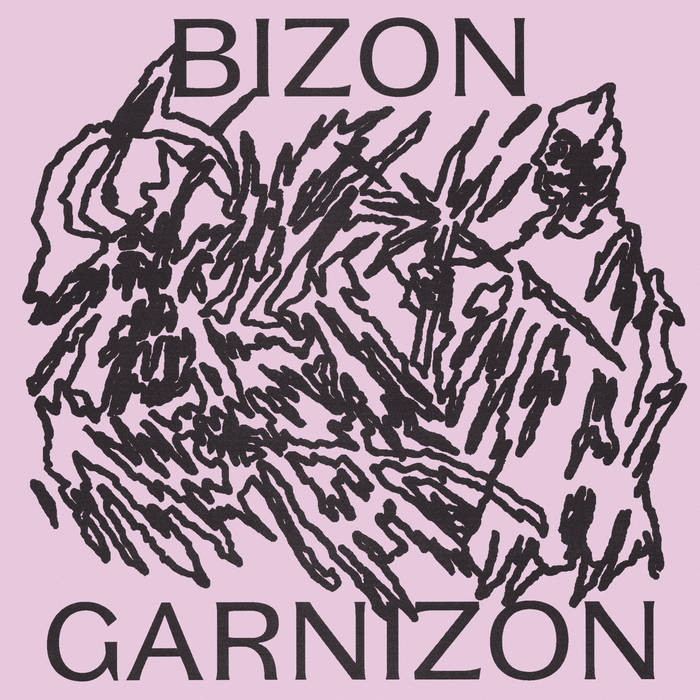Short-lived but legendary, Šarlo Akrobata were a Belgrade post-punk trio that burned bright and fast. Formed by Milan Mladenović, Dušan “Koja” Kojić, and Ivan Vdović, they were a collision of sharp minds with clashing visions. All three would go on to lead pivotal bands — Mladenović with the introspective, melodic Ekatarina Velika, and Koja with the abrasive, bass-driven Disciplina Kičme. This 1981 debut, Bistriji ili tuplji čovek biva kad…, is their only full-length studio album before creative differences pulled them apart — and it’s an absolute explosion of ideas.
The album had a rocky start. During early sessions at PGP RTB Studio 5, label editors — including composer Aleksandar Pilipenko and former Korni Grupa bassist Bojan Hreljac — dropped the release after hearing one of the more experimental tracks. Jugoton eventually stepped in, and the album featured guest appearances from figures like Goran Vejvoda and Gagi Mihajlović. Still, it wasn’t a commercial success. Most of Šarlo’s hits — like Ona Se Budi and Niko Kao Ja — had already appeared on the slightly more radio-friendly compilation Paket Aranžman. The LP itself sold only around 10,000 copies, but today it’s regarded by critics as one of the most influential records in Yugoslav rock.
The cover — a strange, mirrored image of the band facing a young boy — was conceived by the group with Vejvoda, who also designed Paket Aranžman. The inner sleeve featured their drawings: Mladenović sketched his girlfriend, Kojić included a two-panel cartoon with borrowed text from Politikin Zabavnik, and Vdović added his abstract illustration, reflecting their artistic ambition.
From the opening line of “Šarlo je nežan… ali nije glup,” the band sets the tone: tender but unpredictable, self-aware yet chaotic. Koja’s growling bass dominates, while Mladenović’s melodic voice sways between deadpan detachment and strained vulnerability. On Pazite Na Decu I, spoken-word shouts of “Pazite!” fly over metallic percussion in a performance that feels like theatre turned inside out. It’s not just music — it’s a sonic panic attack.
Tracks like Fenomen and Sad Se Jasno Vidi escalate into jagged punk bursts, with Koja and Mladenović volleying vocal duties like a tug-of-war. Rano Izjutra brings a glimmer of the melodic clarity that would later define EKV, but even here, the emotion is cracked and filtered through distortion.
Then there’s Ljubavna Priča, a seven-minute descent into no wave chaos — screams, grinding guitar, collapsing rhythm. Just when it feels like everything is about to break apart, Samo Ponekad arrives like a rush of fresh air: catchy, off-kilter punk-pop that wouldn’t be out of place on an early Azra or Haustor album.
O, O, O… and Problem tap into ska and two-tone grooves, with horns cutting through the grit, while Ja Želim Jako delivers the record’s fiercest shout — “Ja želim jako!” — a line that could sum up the band’s entire philosophy of zero filter. The finale, Pazite na decu II, brings us back to the distorted and unsettling.
Sadly, this was their last major release. Barely tolerating one another by the end, Šarlo played a farewell show in Ljubljana in October 1981 before disbanding. Milan founded Katarina II (later EKV), Koja launched Disciplina Kičme, and Vdović joined Katarina II before leaving in 1985. The rivalry between Milan and Koja remained, with members occasionally crossing over between bands.
Bistriji Ili Tuplji Čovek Biva Kad… is one of the most daring and influential records in Ex-YU rock history. It’s wild, unpredictable, and deeply original — a kind of beautiful chaos that could only come from a band about to split at the seams. It laid the groundwork for two of the most important bands of the region, while remaining a masterpiece in its own right.


